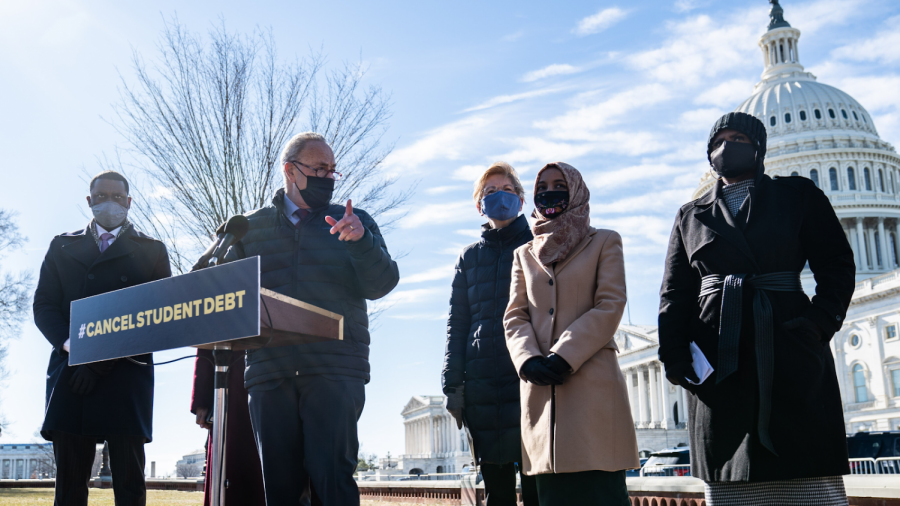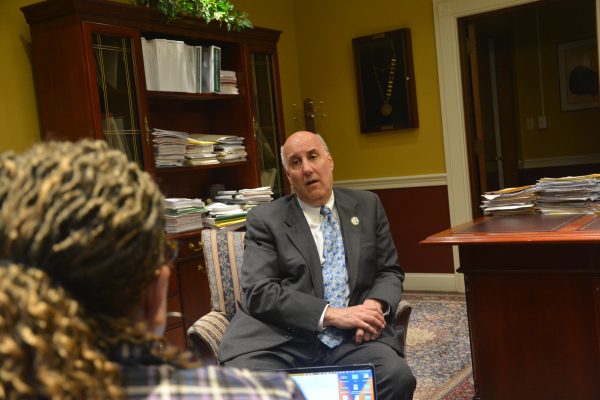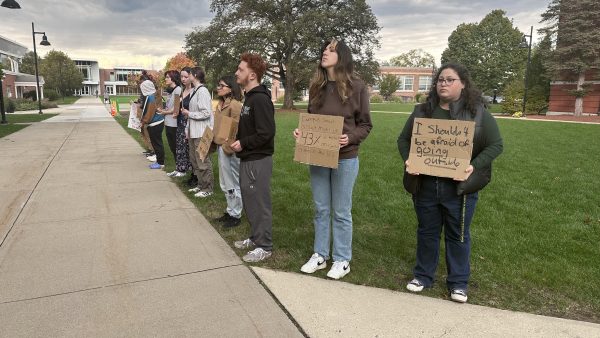Student Debt Relief and the Need for a Resolution
March 2, 2021
-Peter Canova
Currently, democratic lawmakers are discussing how they will enact new legislation with a democratic president and majority in both the house and senate. This is the time for democrats to finally get something done for their constituents, however the fractured party is making it difficult for lawmakers to establish said legislation.
In particular, student debt has been on the minds of many even before the pandemic started. Student loans have been an issue that has plagued this country for decades, and many progressives in the house and senate are attempting to alleviate that burden for many Americans.
On February 4th, Senate Majority leader Chuck Schumer (D-NY), Elizabeth warren (D-MA), Ayanna Pressley (D-MA), Ilhan Omar (D-MN), Alma Adams (D-NC), and Mondaire Jones (D-NY) spoke at a press conference about the need for student debt forgiveness. Senator Schumer told the crowd, “We are here today to introduce our proposal to cancel $50,000 in student debt”. This number has been in conversation since President Biden won the Presidential nomination, as both Warren and Schumer have seemingly led the charge.
With Democrats having such a sweeping majority, one may consider that it would be easy for democrats to pass such a resolution, however that has not been the case. Not all democrats agree with the high figure, and that includes President Biden. In a town hall with CNN on Feb. 16, the president was asked if he would pass such a resolution, and he unequivocally stated that he “will not make that happen”. He went on to clarify his thoughts, explaining that he is, “prepared to write off $10,000 of debt but not $50,000”.
The President went on to state that, “It depends on the idea that I say to a community that I am going to forgive the debt for people who have gone to Harvard and Yale and Penn”. It may be unclear, but President Biden is conveying that he does not believe wealthy students should be getting their debts paid off. This is something many can agree with, however it seems to be a contestable argument in terms of its affectability on the American populous as a whole.
Means-testing, or one’s eligibility for government assistance, has sparked much conversation and argument, especially when it comes to this topic in particular. A recent article done in the Journal of Policy Analysis and Management argued that, “Means-testing should be eliminated; it is not a necessary feature, as demonstrated by some of the country’s most successful social programs— Social Security, Medicare, and unemployment insurance”. Authors Sara Goldrick-Rab and Marshall Steinbaum present a clear image as to how important student debt relief could be.
Making a clear and distinctive policy is important when convincing the populous that student debt relief is a plausible and very possible idea. Fairness seems to be brought up a lot and so many are worried that wealthy students will get the bulk of the relief, but even if that is true, it doesn’t deny the fact that all lower income students will be able to pay all of their student loans. Biden’s line of reasoning seems to neglect the fact that $20,000 in student debt for low to middle income families is a huge expense, and that is on the low end of the spectrum.
Passing a student debt relief bill would be a much needed bump for the economy, as many people with monthly payments would now have disposable income to place back into the economy. As COVID continues, this disposable income could be a huge benefit for communities all over the country, in terms of paying rent, shopping at local businesses, etc..






















